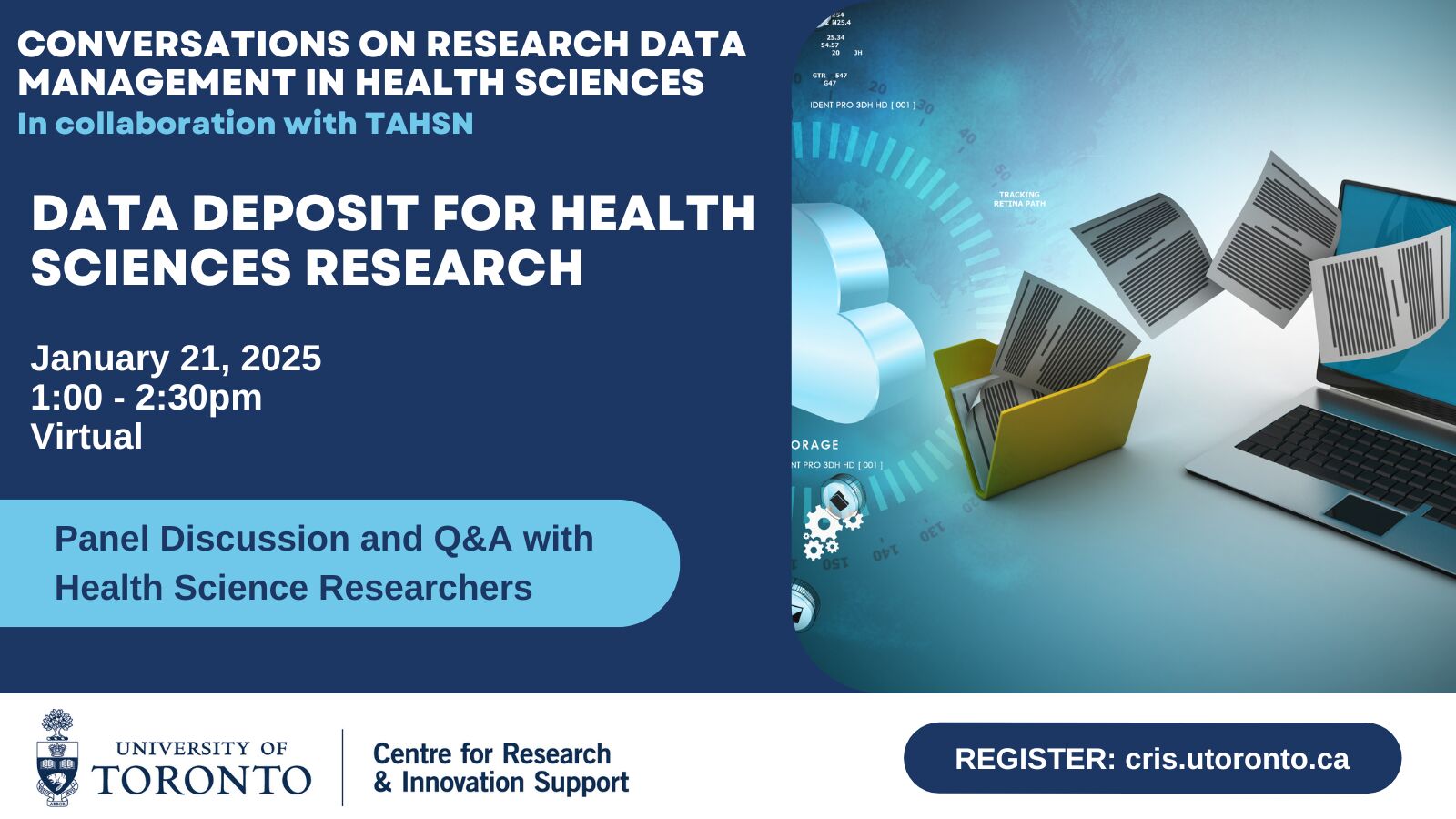
- This event has passed.
Data Deposit for Health Sciences Research – Jan. 21, 2025
Session Description
January 21 2025 @ 1:00 pm - 2:30 pm
The Conversations on Research Data Management in Health Sciences series brings together the University of Toronto tri-campus and Toronto Academic Health Sciences Network (TAHSN) health sciences research community for facilitated conversations about research data management (RDM). Using a peer-to-peer approach, this series aims to increase researchers’ capacity to navigate the complex and changing RDM landscape in health sciences research.
The second session of the series will focus on depositing data. The session will consist of a panel discussion and audience Q&A with health sciences researchers on the ins and outs of depositing research data. Topics will include understanding the benefits of depositing data, preparing data for deposit, choosing a repository, managing access, and finding and using secondary data sets.
Featured Presenters:
- Dr. Rachel Harding, Assistant Professor in the Department of Pharmacology and Toxicology & Principal Investigator at the Structural Genomics Consortium
- Dr. Michael Hoffman, Associate Professor in the Department of Medical Biophysics & Senior Scientist at the Princess Margaret Cancer Centre
- Conrad Pow, Senior Lead for Digital Health at Diabetes Action Canada
- Dr. Daniel Roth, Associate Professor in the Department of Paediatrics at the University of Toronto, and a clinician-scientist in the Division of Paediatric Medicine at SickKids
Intended audience:
- University of Toronto campus-based and TAHSN hospital-based health sciences faculty researchers and their teams
Registration Instructions:
- Register using your UTORid or click 'Sign Up' to create an account using another email address or social account. Email cris@utoronto.ca if you experience any issues.
Learning Objectives
By the end of the session, participants will be able to:
- Describe procedures involved in preparing research data for deposit, considering the type and sensitivity of the data
- Understand key considerations to inform decisions about selecting a repository and managing access to research data based on disciplinary norms, research ethics, and sponsor and publisher requirements
- Identify strategies for finding and using secondary data sets


